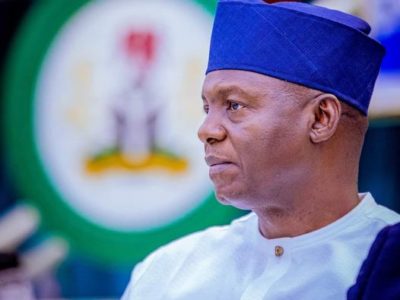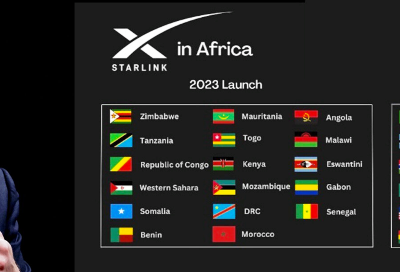By Marozoka Oruame
This month, Nigeria showed signs of robust progress toward commercial rollout of the fifth generation (5G) of cellular networks. In an official statement, the Nigerian Communications Commission (NCC) indicated it was already working actively to license, launch and fully regulate deployment of 5G technology in the country. The telecoms regulator formally inaugurated a committee to develop the Information Memorandum (IM) for the auction of 3.5 gigahertz (GHz) spectrum band which will be used for early deployment of 5G services in the country.
It is a major development for Africa’s largest mobile market of over 180 million subscribers already trailing behind South Africa and Kenya in the continent’s 5G race. Get ready for more robust remote work environment, videoconferencing, small enterprises becoming more innovative than big businesses and government/citizens engagement in ‘digital-spheres,’ particularly in the big cities: Lagos, Abuja, Port Harcourt, Kaduna, Ibadan, Enugu and others.
The Executive Vice Chairman (EVC) and Chief Executive Officer (CEO) of NCC, Prof. Umar Garba Danbatta, inaugurated the 18-member committee in Abuja. The committee’s task is to prepare the required IM that will define the blueprint for the auctioning of the 3.5GHz spectrum band include details of the spectrum to be made available, the pre-qualification process, the auction process and indicative timetable. Its mandate is to quickly get Africa’s most populous country of over 200 million people 5G-ready.
5G worldwide
Since its entry, the 5G technology has been adopted in a lot of countries faster than its predecessors. As at January 2021, about 61 countries have launched commercial 5G networks, according to data by GSA (Global mobile Suppliers Association). More than 30% of the world’s countries now have 5G availability, the top three countries that contain the most cities with 5G are China at 341, the United States at 279, and South Korea with 85. The U.K. now has 5G in 54 cities, followed closely by Spain with 53.
A total of 144 operators have launched commercial 3GPP-compatible 5G services in these countries. Meanwhile, 413 operators in 131 countries are investing in various 5G tests, trials, pilots, and deployments.
In addition to that, 27 countries added commercial 5G deployments last year, including three countries that have already reached the top ten in terms of cities covered; Canada with 49 cities, as well as France and Thailand tied at 24.
RELATED
5G Services Underway In Nigeria As Danbatta Sets Up Committee On Spectrum Auction
Nigeria Close To Launching 5G Services As NCC Signs Spectrum Deal With NIGCOMSAT
Nokia Powers East Africa’s First Commercial 5G Services In Kenya With Safaricom
MTN Launches 5G Network
Vodacom Switches On Africa’s First 5G Network As Conspiracy Theories Dog Nigeria’s Launch
The 5G technology is the new wave of technology following its predecessor that is the 4G system of networks. The 5G network is a cellular network like its predecessor and it operates on the same radio frequencies as the one being used on our wi-fi, smartphones and satellite communication networks; but the difference is 5G takes the technology a little bit further.
5G operates at extremely high frequencies (mm waves), therefore the large bandwidth gives room for high download speeds and within a very short amount of time, up to 10 gigabits per second (Gbit/s). This technology is definitely a gamechanger, it has the ability to connect things everywhere, reliably and without any form of lagging, therefore we can measure, understand and manage things in real time, it also makes possible for new applications in IoTs (Internet of things.)
South Africa, Kenya leading Africa’s 5G fray
On the African continent, two countries are already demonstrating that 5G is fully primed to take off at an unprecedented scale. In May of 2020, South African carrier Vodacom pioneered the continent’s rollout of fifth generation GSM network in South Africa. The following month in June, the MTN Group launched its own 5G network across major cities in South Africa to spike competition for the 5G market.
Kenya joined the 5G fray April 2021 with the launch of a 5G network by Safaricom to make the east African country the second on the continent to roll out 5G services to customers, according to GSMA, an organization representing mobile network operators worldwide.
South Africa is expected to reach 11 million 5G subscribers by 2025, and it will be a major turning point in that country’s adoption of the fifth generation of cellular technology in only five years despite the wearisome controversies over the health-risk of 5G.
The road to Nigeria’s 5G launch
5G is not here yet even though Nigeria did a trial of the technology in 2019, but it is certain that Nigeria is on the verge of leading West Africa’s 5G commercial launch.
The authorities in Nigeria have taken painstaking measures to ensure that the issues surrounding 5G launch are properly addressed before a commercial launch is ignited.
According to Danbatta, the NCC, in line with its mandate, has committed enormous resources to ensure harmonised spectrum is secured and released in a timely manner for present and future deployment of services that will underpin the fourth industrial revolution, including International Mobile Telecommunication (IMT-2020) services.
To quote the telecom regulator at various occasions, there is no doubt that Nigeria is gearing up for a robust 5G rollout. Hear Danbatta:
“Arising from these efforts, which include engagements with relevant governmental and non-governmental organizations during preparatory meetings at national, regional and continental level, we have been able to secure harmonized frequencies for 5G deployment in Nigeria.
“We put in extra efforts and secured additional 160MHz in the 3.5GHz band by making huge commitment of resources to secure additional Spectrum from Nigerian Communication Satellite Limited (NigComSat) – [this is in relation with a recent Memorandum of Understanding (MoU) between NCC and NigComSat].
“Having put in these efforts and resources to secure, amongst others, contiguous spectrum in a premium band like the 3.5GHz band that is being adopted as the best spectrum for early deployment of 5G with about 70 per cent of 5G global deployment so far, it has become imperative to immediately re-purpose the 3.5GHz band in Nigeria for auction in accordance with best practices.”
Challenges to 5G rollout
But there are fundamental challenges that the authorities are equally working to address in respect to having a successful 5G rollout. Like elsewhere in the world where conspiracy theories raised false alarm over the possible health risk of 5G, the NCC has had to lead the campaign to puncture those conspiracies and finally got the official nod to kickstart Nigeria’s 5G entry.
But getting 5G effectively off the ground to serve Nigeria’s expansive telecoms market will require the following challenges to be addressed. They include:
- Poor Fiber Penetration: The coverage of optic fiber-cable in Nigeria is quite poor most especially in cities where 5G is expected to be initially deployed. This poor penetration of fiber optics is even worse in rural areas and villages. According to an NCC report released in 2018, metropolitan cities need over 120,000km of fiber networks for the country’s backhaul interconnectivity. Regrettably, only about 32% of this requirement has been met leaving more than half of the population to deal with terrible or weak connections as a result of this. Some of the major causes of poor fiber infrastructure are; bad roads especially in these rural areas, cable vandalism caused most times by construction of roads.
- Device Challenges: The deployment of 5G technology is predominantly determined by the availability of 5G devices which are rare at the moment due to some technical challenges. Some of these challenges are multiband support of upper and lower frequency bands. Also, these 5G devices are expensive and may not be affordable for the average user. Another point of concern is heating, 5G technology requires high power consumption to transmit in such high frequency bands; this brings us to the next point which is:
- Poor Electrical Power Supply: As stated above, the 5G network brings new power supply demands. This increase in power consumption is due to the additional equipment and 5G sites or base stations which are vital for high density coverage. Nigeria has been dealing with inconsistent power supply for years, especially in rural and under-developed areas. This would be a major challenge that needs to be tackled for the effective launch of the 5G technology.
- Network Security: The introduction of 5G will create a major shift in the dynamics of the telecoms industry, creating new possibilities for IoTs, enabling interconnectivity of more devices. While this is a good thing, it would definitely expose the network to more advanced cyber threats. According to the Global Cyber Security Index (GCI) 2018 report released by the International Telecommunication Union (ITU), Nigeria ranked 57th out of 175 countries listed in the campaign against the menace of cybercrime globally. This shows that Nigeria’s level of commitment in the fight of cybercrime is ranked medium. With 5G fully operational in the country, cybercrime will be in the increase.
5G will positively transform businesses, every sector
But the long-term benefits of the 5G technology far outweigh the fleeting hindrances. The 5G technology is the future of everything whether government or business or education and as many sectors as can be conceived. Ram Kezel wrote recently in IT Edge News on how 5G can favour small businesses. It is a startling insight on what is about to change in Nigeria when 5G finally anchors.
The 5G technology is 100 times faster than 4G and will impact on how quickly employees access or find important information. It will affect the customers’ experience when they access content on business websites notably ecommerce. Of course, flawless videoconferences that will be more productive without lagging. Fast file sharing boosts business efficiency. And rapid payment processing guarantees that there won’t be lost purchases because of the sluggish speed.
5G will advance remote work environment faster than the pandemic forced heavy dependence on technology for life to go on. Medium states that by 2035, more than one billion people will be working remotely. “With 5G, remote workers will have greater access to remote access software so that they can more easily communicate and collaborate with colleagues as well as work more effectively” – writes HR Daily Advisor.
No doubt, 5G will close the gaps between small and big businesses in terms of innovation. Up until now, bigger businesses had an advantage in creating innovations, because they had more resources for that. But the implementation of 5G can be helpful for smaller firms to develop innovations at a lower cost. Equinix suggests that “Businesses will be able to more easily experiment with and leverage disruptive technologies such as drones, artificial intelligence, robotics, and others.”
COVER IMAGE: BBC




























